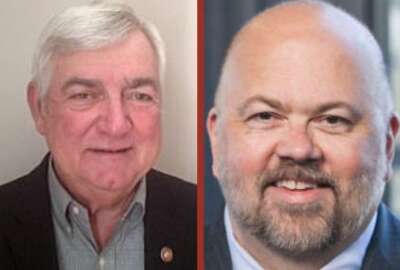
FERS/CSRS programs are probably safe, for now
With half the legislative year over and Democrats running the House while political eyes focus on 2020 races, the retirement plan looks safe for now.
Most, if not all, of the White House proposals to revamp or gut the Civil Service Retirement System and Federal Employees Retirement System programs are likely to crash and burn, again, on Capitol Hill. So is the administration’s plan to eliminate the Office of Personal Management transferring most of its functions to the General Services Administration. Unions or groups representing federal workers, managers and retirees have become adept at blocking plans to require federal/postal workers to pay more for their retirement package while getting smaller starting annuities and reduced protection from inflation in retirement. The fact that Democrats control the House makes it even more unlikely the two major civil service retirement plans will be changed this year, or in the 2020 election year.
Despite repeated efforts to cut the cost of the federal retirement programs, the only significant change came during the Obama administration when new hires under the FERS system were required to contribute more of their salary toward their retirement package.
Each year for the past six years, there have been efforts to either make feds pay more for their pensions, or to drastically reduce the value of their lifetime annuities. Some of the years politicians merely went through the motions. But at least twice, the House got close to approving some of the changes only to lose interest or run out of time late in the year. As the election gets closer, Congress — which already has an enviable vacation schedule — is likely to spend even more time away from Washington D.C.. That would give them even less time push through any of the proposals that would cut billions of dollars in benefits for current and future retirees in future.
Each year Congress has revisited and reviewed a group of proposals that would trim billions of dollars in retiree benefits over a 10-year period. The proposed changes include:
- Eliminating any future cost of living adjustments for current and future retirees under the FERS program and reducing all future COLAs for CSRS retirees by 0.5%.
- Basing annuities for future retirees on their highest five-year average salary. The government now has a high-three formula. The change could be costly, especially for workers who received regular pay raises or promotions.
- Eliminate the FERS retirement supplement. Currently, if someone under FERS retires before age 62 — the eligibility for minimum Social Security — he or she gets a supplemental or “gap” payment to make up the difference. Thousands of feds, from air traffic controllers to firefighters and law enforcement personnel, are forced to retire by age 57. Loss of the supplement, which can be worth thousands of dollars a year, could force many of them to work until at least age 62.
Eliminating the FERS retirement supplement would be a blow to one of the few groups of unionized feds who endorsed and have stuck with President Trump and his immigration program. While the national union has fought Trump at almost every step, the Border Patrol council of the American Federation of Government Employees endorsed him and has very publicly backed his programs in media events in Texas, Arizona and California..
Given the fact that the legislative year is half over and that Democrats run the House while political eyes are focused on the 2020 races, the retirement plans looks safe, at least for another couple of years.
Nearly Useless Factoid
By Alazar Moges
When you think of Leonardo da Vinci, you immediately imagine a piece of art, the Mona Lisa or maybe The Last Supper. But probably not helicopters. Though it wasn’t until the 1940s that the first fully functioning helicopter was built, da Vinci’s late fifteenth century sketches of a vertical take-off flying machine are considered the blueprint that set the stage for what we know now as the helicopter and maybe even more impressively demonstrated his advanced understanding of physics at such an early time in history.
Source: BBC
Copyright © 2024 Federal News Network. All rights reserved. This website is not intended for users located within the European Economic Area.
Mike Causey is senior correspondent for Federal News Network and writes his daily Federal Report column on federal employees’ pay, benefits and retirement.
Follow @mcauseyWFED
Related Stories





